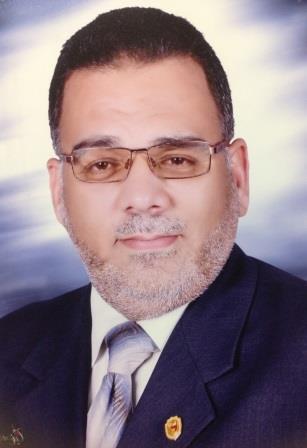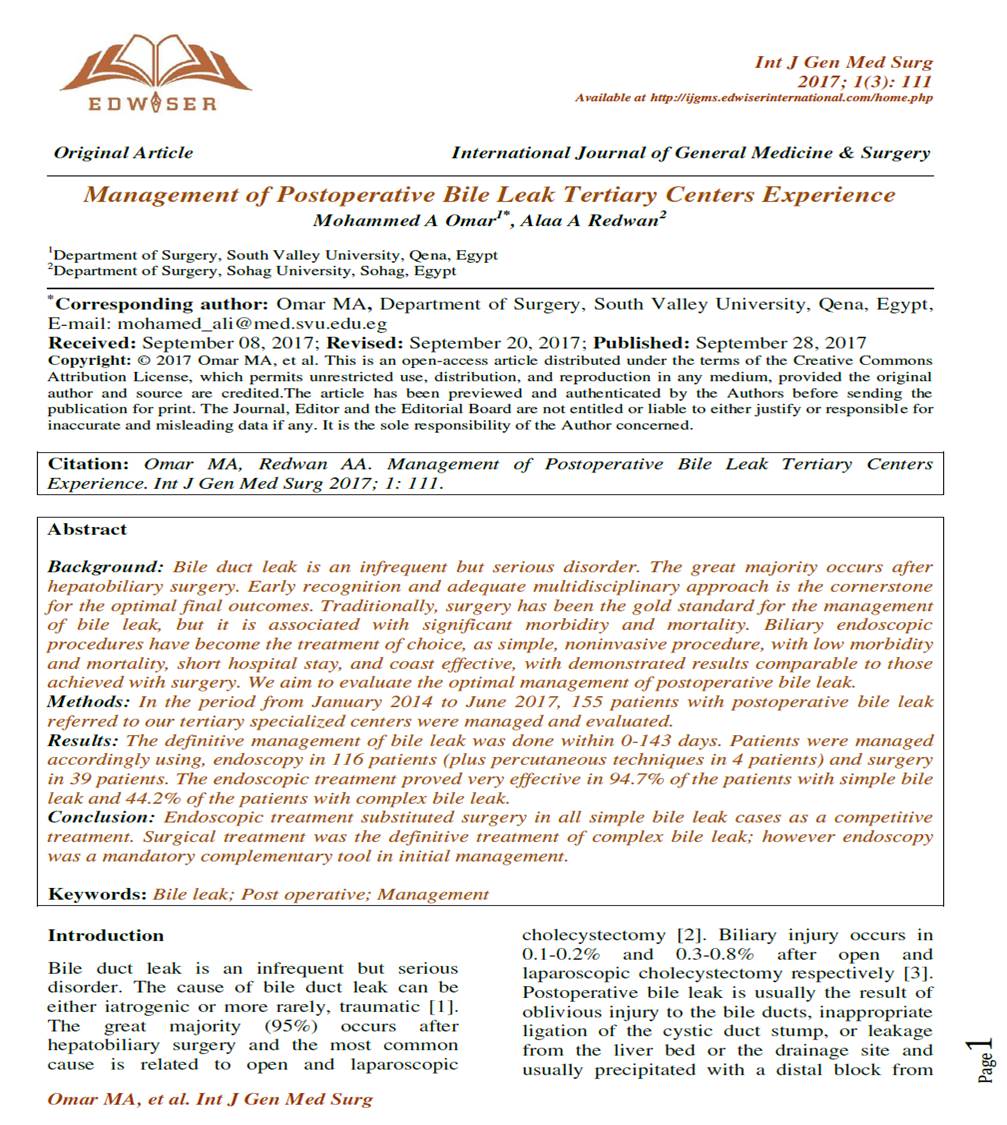Abstract
Background: Bile duct leak is an infrequent but serious disorder. The great majority occurs after hepatobiliary surgery. Early recognition and adequate multidisciplinary approach is the cornerstone for the optimal final outcomes. Traditionally, surgery has been the gold standard for the management of bile leak, but it is associated with significant morbidity and mortality. Biliary endoscopic procedures have become the treatment of choice, as simple, noninvasive procedure, with low morbidity and mortality, short hospital stay, and coast effective, with demonstrated results comparable to thoseachieved with surgery. We aim to evaluate the optimal management of postoperative bile leak.
Methods: In the period from January 2014 to June 2017, 155 patients with postoperative bile leak referred to our tertiary specialized centers were managed and evaluated.
Results: The definitive management of bile leak was done within 0-143 days. Patients were managedaccordingly using, endoscopy in 116 patients (plus percutaneous techniques in 4 patients) and surgery in 39 patients. The endoscopic treatment proved very effective in 94.7% of the patients with simple bile leak and 44.2% of the patients with complex bile leak.
Conclusion: Endoscopic treatment substituted surgery in all simple bile leak cases as a competitive treatment. Surgical treatment was the definitive treatment of complex bile leak; however endoscopy was a mandatory complementary tool in initial management.


